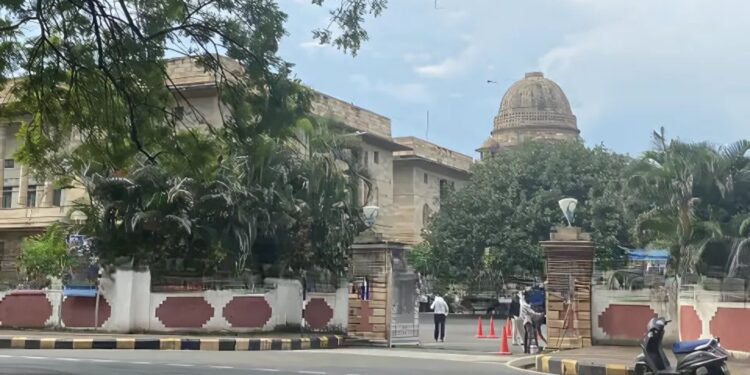The Bombay High Court’s Nagpur bench recently revoked the anticipatory bail granted to two police officers, Rajesh Jaware and Chandraprakash Solanke, accused in the custodial death of a 19-year-old man in Akola [Sukhdev Mahadev Haramkar v. State of Maharashtra].
Justice Urmila Joshi Phalke, in her ruling, stressed that when those responsible for upholding the law themselves violate it, their punishment must be severe and proportionate. As a result, the anticipatory bail previously granted to the two officers was cancelled, underscoring the Court’s Court’s stance on police accountability.
“In cases where law enforcement officers, who are entrusted with upholding the law, are accused of violating it, the punishment must be stringent, serving as a deterrent to both the accused and others,” Justice Phalke asserted. She further stated that such violations harm public trust and have a far-reaching impact, eroding confidence in the criminal justice system, particularly when police officers are involved. “Police officers, being the enforcers of the law, must remember their duty not only to the accused but also to society at large. Incidents like these cause far greater damage to the justice system than those involving private individuals,” the judge emphasized.
The case stems from the arrest of Gowardhan Ganesh Haramkar, who was taken into custody on January 15, 2024, by Jaware and Solanke on suspicion of robbery. During his detention, it is alleged that he was severely beaten by the officers, leading to serious injuries. Despite the injuries, the young man was reportedly left without medical attention until January 17, 2024, when he was transferred to Vighnaharta Hospital, where he succumbed to his wounds.
In response to this, Gowardhan’s uncle filed a complaint on April 16, 2024, alleging that the officers had used excessive force during the arrest, which eventually led to Gowardhan’s death. The complaint triggered an investigation and the registration of a case against the officers.
Initially, the Additional Sessions Judge in Akot had granted anticipatory bail to the officers, citing insufficient evidence to connect them directly to the assault. The judge also referenced the delayed filing of the FIR and suggested the injuries might have been accidental rather than a result of police brutality. However, the complainant’s legal counsel strongly contested this ruling, arguing that the available evidence pointed to police misconduct, warranting further investigation.
Before the High Court, the complainant’s counsel argued that the officers had acted with impunity, using “third-degree methods” that led to Gowardhan’s death. They contended that the severity of the allegations called for a thorough investigation and custodial interrogation, which the lower Court had failed to consider adequately.
In her judgment, Justice Phalke criticized the lower Court for not giving sufficient weight to the seriousness of the charges and the potential for tampering with evidence. She emphasized that the case demanded more than a superficial review and that such behaviour from police officers should not be treated lightly.
Justice Phalke further noted that the actions of the accused officers significantly impacted public trust in the criminal justice system. “Such incidents of police misconduct undermine the very fabric of justice and create a sense of distrust in the law enforcement agencies,” she stated.
Consequently, the High Court cancelled the anticipatory bail and ordered the officers to surrender before the Investigation Officer by December 20, 2024. The Court underscored that the accountability of law enforcement officers is critical to maintaining justice and restoring public confidence in the legal system.
Advocate AV Karnavat represented the complainant, while Additional Public Prosecutor Shamsi Haider appeared on behalf of the State. Advocate JM Gandhi defended the accused officers.

















